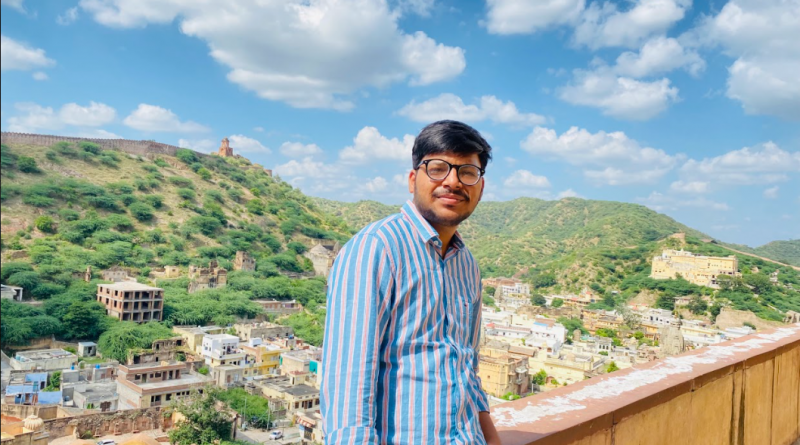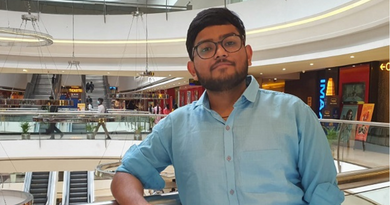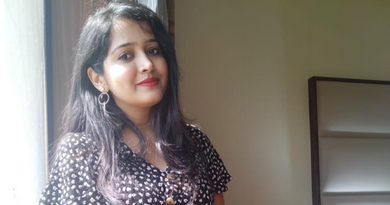Internship at The Citizen Foundation, Karachi – A teacher battling against the society

About the Author: Osama Abdullah Nagda, a student of SZABIST, shares how an internship helped him discover his area of interest and how he made a career out of it.
Amid worrying about getting an internship, a prerequisite for a Bachelor’s degree in my university, and wondering how I would spend my summer vacations, I saw a pamphlet on the notice board with a tagline – ‘Your action can make a difference, right now!’ It was a notice for an internship named Alumni Development Program provided by The Citizen Foundation (TCF). Under this program, students of different universities were invited to teach students who couldn’t afford tuition to prepare for aptitude tests required to get into colleges. The idea of teaching underprivileged students of TCF schools seemed fascinating, so I forwarded my CV to the given email id. The next day, I received an email citing that I’d been shortlisted and the next round of the selection process would be held at the university.
Once the shortlists reached the premises, we did a small ice-breaking activity wherein each candidate had to compare the adjacent candidate to a vegetable. The selection process began with a demonstration class given by the HR personnel after which we were asked to choose a topic and prepare a demo lecture. I anxiously entered the room to present my demonstration on ratios. They asked questions from students’ perspectives during the demo and asked me to explain a few concepts again. I tried my best to explain the concepts using real-time examples. Then we were informed about the group discussion round based on which students would be selected. We were presented with different situations that might arise at the school and asked to resolve them. The first situation was of a child getting lost after leaving the school. As I was leading the group, I asked the team members to note their suggestions; I combined them and concluded that the school authority should apologize to the parents, set up a meeting with them along with the security guard to clarify what had happened, and ensure that this doesn’t happen again. Next, we were asked how we would spend a specific budget for the improvement of school. We presented various ideas; I suggested that the money should be spent in developing the security system of the school viz. installing cameras, training guards, etc.
I received an email from TCF the next day congratulating me on being selected. The team leader assigned me a school at Musharraf colony, Karachi, and told me that I would be teaching three courses. I joined the school irrespective of it being far from my home. There were 20 students in my class each of whom had to walk to school for about 30 minutes. Their dedication inspired me from the very first day. As a learning coach, I taught them the assigned subjects, completed scheduled coursework, and gave tests. I also took care of student attendance, tabulated results, and resolved their complaints. I also handled some ground challenges that we faced at TCF.
There was an incident that changed my attitude towards the situation. One morning, nobody had come to the class; I inquired about it from the gatekeeper who told me that since they had a severe shortage of water in that area and received water supply for two hours once every month, all the students were helping their parents in storing water. While thinking of ways to help those students, I came across a picture of Nelson Mandela with a quote – ‘Education is the most powerful weapon which you can use to change the world.’ Then and there, I decided to get at least five students placed in a college. When I returned to school after the Ramadan break, I got to know that only two students would be attending the classes, rest all had been restricted from coming to school. The students had immense dedication but couldn’t fight their parents, so I took the matter in my hands and visited their homes. I explained the importance of education and the role of females in the society to the respective parents and was assured that they would send their children to school.
The test date had been announced and the classes had ended. I was hoping that the children could win their battle against the society and change their future. While scrolling through the test results, I felt my heart pounding. There was just one kid from my school who had cleared the test. I felt bad for other students but felt a little triumphant since my hard work had paid off. I have been teaching in a school for a year now. This internship helped me choose a career making me understand the importance of education. After all, a child without education is like a bird without wings.
Do you also want to make difference in others’ lives? Check out these social work internships and set out for a learning-packed journey.
Editor’s note – If you also have an interesting story to share, you can now participate in Your Internship Story Contest 2017 and win cash prizes and goodies worth INR 1 Lac!



